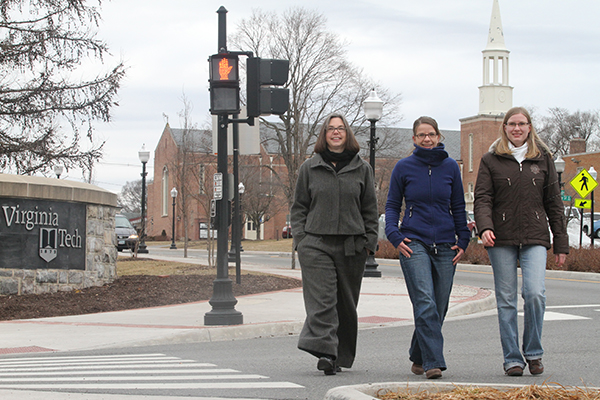Caught in the crosswalk: Molecular traffic signals keep cells on the right track, researchers say

Researchers at the Virginia Bioinformatics Institute at Virginia Tech have found that signaling during crucial parts of cell division is slower than expected to safely enable chromosomes to split and create genetically identical daughter cells.
The discovery featured in Current Biology sheds light on the intricacies of the cell cycle and how errors in this cycle can lead to cancer and other chromosomal defects.
The cell cycle is an essential biological process that refers to a series of ordered events that allows cells to duplicate and divide.
While unraveling the mechanism of cellular division, scientists found that an important signaling network acts as a molecular traffic light or checkpoint. This network holds the cell cycle until each chromosome is properly in place.
This ensures that cells retain their identity and the appropriate number of chromosomes. Failure of this checkpoint can be catastrophic, resulting in cancer or other chromosomal issues such as Down syndrome.
Importantly, however, the checkpoint is meant to be temporary. If it remained active past a certain point, cellular division could not continue properly.
Scientists previously proposed that the molecular traffic light becomes completely switched off, but Silke Hauf, a biology fellow at the Virginia Bioinformatics Institute, and her research team show that it remains active, but the ‘stop’ signal is received too slowly to prevent the cell from progressing beyond a certain point.
“It’s like crossing a big street,” says lead author Julia Kamenz, a visiting biology fellow from the Friedrich Miescher Laboratory of the Max Planck Society. “You must first wait until the light switches from red to green to begin walking. But now, if the light switches back to red while you are in the middle of the street, you must keep walking or you’ll never make it across.”
Being slow in responding to the molecular traffic light creates a considerable risk for cells. Hauf and Kamenz show that if the initial signal isn’t recognized quickly enough, fatal errors in chromosome separation can occur. Nevertheless, the benefit of not getting stuck during cell division seems to outweigh that risk. Hence, the slowness allows cells to provide vital monitoring and control functions to ensure proper division and distribution of chromosomes without the necessity of switching it off in time.




